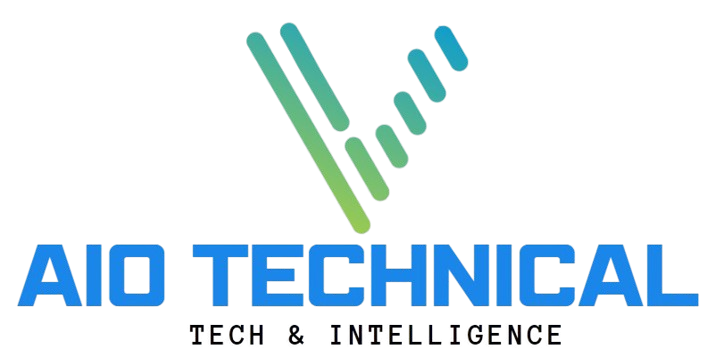Impact of 5G on Smart Cities

Introduction: Revolutionizing Urban Living
The impact of 5G on smart cities represents a significant turning point in urban development, reshaping how cities function and enhancing the quality of life for residents. With its unparalleled speed, reliability, and connectivity, 5G technology is set to facilitate the integration of advanced technologies that define smart cities. This article explores the multifaceted it, focusing on connectivity, public services, economic growth, and sustainability.
Understanding 5G Technology
5G, or fifth-generation wireless technology, offers a revolutionary upgrade to existing cellular networks. Compared to 4G LTE, 5G provides data speeds up to 100 times faster, drastically reducing latency to mere milliseconds. This enhanced performance enables real-time communication, making it an essential component in the functioning of smart cities. By supporting a vast number of connected devices, 5G lays the groundwork for the Internet of Things (IoT), autonomous systems, and a host of other innovative technologies.
Defining Smart Cities
Smart cities utilize digital technologies to optimize urban services, improving efficiency, sustainability, and the quality of life for their residents. Through the integration of IoT devices, data analytics, and AI, these cities aim to streamline operations such as transportation, energy management, waste disposal, and public safety. The ultimate goal is to create a cohesive urban environment where resources are allocated efficiently and services are delivered effectively.
The Transformative Impact of 5G
1. Enhanced Connectivity for IoT Devices
One of the most significant aspects of the impact of 5G on smart cities is its ability to support an extensive network of IoT devices. These devices generate vast amounts of data that need to be processed in real-time. 5G facilitates the seamless connection of millions of IoT devices, enabling cities to monitor and manage urban infrastructure more effectively.
For example, real-time data from 5G-enabled sensors can track air quality, traffic patterns, and energy usage, allowing city officials to make informed decisions that improve public health and reduce congestion.
2. Revolutionizing Urban Transportation
The impact of 5G on smart cities extends to public transportation systems. With its ultra-low latency, 5G enables the development of autonomous vehicles that rely on real-time data for navigation. This can significantly reduce traffic congestion, lower emissions, and provide more accessible transport options for residents.
Additionally, 5G can enhance existing transportation networks. Real-time data from connected sensors can optimize traffic signal timings, reducing delays and improving the efficiency of buses and trams.
3. Advancements in Public Safety and Emergency Services
Public safety is another critical area transformed by the impact of 5G on smart cities. Enhanced connectivity allows for faster communication between emergency responders, law enforcement, and city officials, ensuring coordinated and effective responses to incidents. For instance, 5G-connected drones can assess disaster sites or monitor large public events, providing live data to command centers.
Smart surveillance systems equipped with 5G can also improve security measures through real-time monitoring and advanced analytics, helping cities detect and respond to potential threats more effectively.
4. Smart Energy Management
Efficient energy management is crucial for sustainable urban living, and the impact of 5G on smart cities is pivotal in this domain. 5G technology enables real-time monitoring of energy consumption through a network of smart meters and sensors. This connectivity allows cities to balance energy supply and demand more effectively, reducing waste and costs.
Moreover, 5G supports the integration of renewable energy sources into the grid, optimizing their usage and contributing to overall sustainability efforts.
5. Transforming Healthcare Delivery
Healthcare is set to benefit immensely from the impact of 5G on smart cities. Telemedicine can flourish with high-speed connectivity, enabling real-time video consultations and remote patient monitoring. This can lead to better health outcomes by allowing healthcare providers to access patient data quickly and respond to medical needs efficiently.
Furthermore, 5G can facilitate the deployment of connected health devices, which continuously collect and transmit vital patient information to healthcare professionals, allowing for more personalized treatment plans.
6. Enabling Smart Buildings and Infrastructure
Smart buildings are a crucial aspect of smart cities, and 5G is key to their functionality. These buildings utilize a network of sensors and IoT devices to manage essential systems, such as lighting and security. With 5G, these systems can operate more efficiently, leading to energy savings and improved security.
For instance, smart buildings can automatically adjust their systems based on occupancy levels, optimizing energy usage and enhancing the comfort of residents.
7. Economic Growth and Job Creation
The deployment of 5G is expected to drive significant economic growth, which is a crucial impact of 5G on smart cities. By providing the necessary infrastructure for advanced technologies, 5G can attract businesses and startups, creating new jobs and stimulating investment.
Furthermore, existing industries can enhance productivity through real-time connectivity, which can transform manufacturing processes and retail experiences.
8. Environmental Sustainability
Environmental considerations are increasingly important for urban development, and the impact of 5G can greatly enhance sustainability efforts. 5G technology facilitates efficient resource management, such as monitoring water usage and optimizing waste collection.
Smart sensors can detect leaks in water systems in real-time, conserving valuable resources. Additionally, 5G can support electric vehicle infrastructure, promoting greener transportation options.
9. Challenges and Considerations
Despite the numerous benefits, the impact of 5G on smart cities does come with challenges. The initial cost of deploying 5G infrastructure requires substantial investment, which may pose a barrier for some cities. Furthermore, increased connectivity raises concerns regarding cybersecurity; robust measures are essential to protect against potential threats.
Cities must also consider equity in technology access to ensure that the benefits of 5G are distributed fairly among all communities.
10. The Future of 5G in Smart Cities
As 5G continues to roll out globally, its influence on smart cities will only grow. Future applications may include more advanced autonomous systems, improved telehealth services, and enhanced entertainment experiences. The integration of 5G with emerging technologies like AI and blockchain will unlock new capabilities and opportunities for urban development.
Conclusion
The impact of 5G on smart cities is profound, with the potential to reshape urban living dramatically. By enabling enhanced connectivity, optimizing public services, and promoting sustainable development, 5G technology stands to redefine how cities operate and serve their residents. As urban areas continue to embrace this transformative technology, the future of smart cities looks increasingly promising.
This article is prepared by V Aiotechnical.com, reflecting the professionalism and expertise of our editorial team. As we navigate the complexities of modern urban living, understanding the impact of 5G is crucial for making informed decisions that will shape the future of our urban environments.





